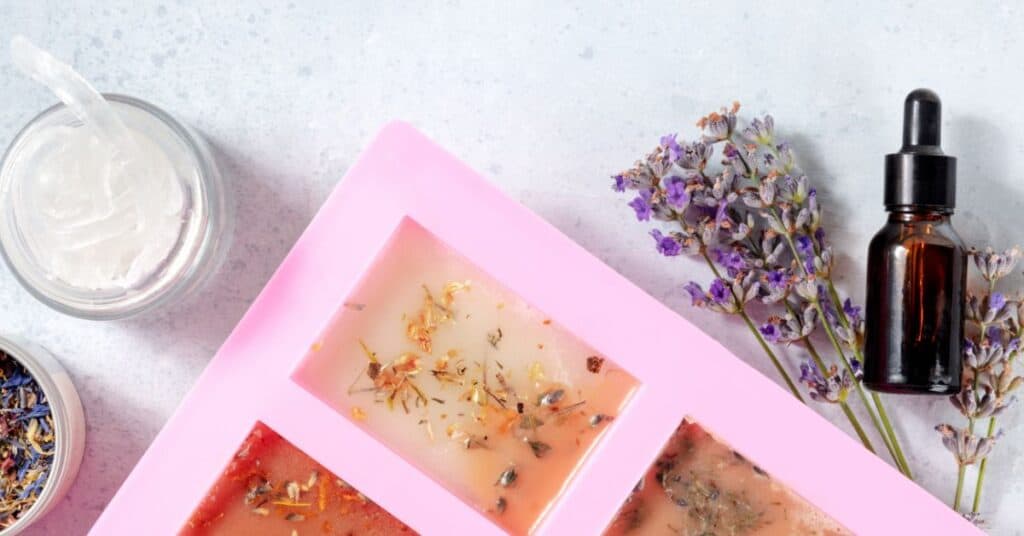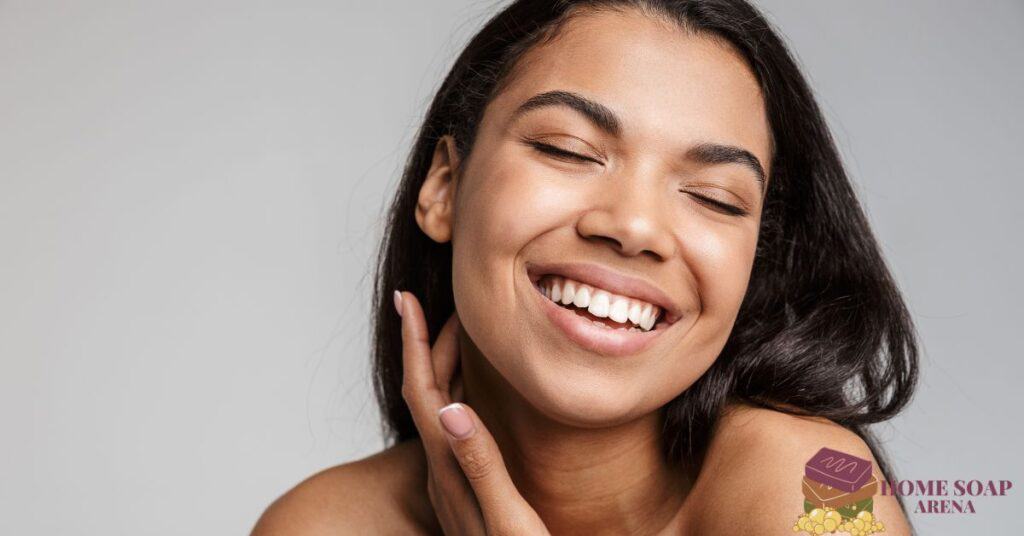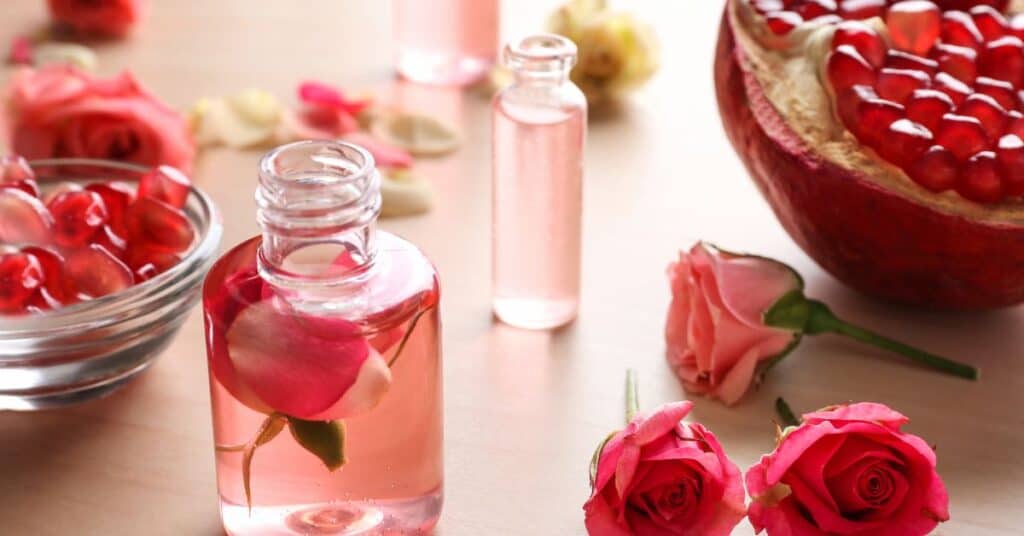Table of Contents
- Does Soap Lose Its Scent?
- How Do You Smell Good All Day With Soap?
- What Gives Soap A Nice Smell?
- Can You Use Perfume To Make Soap?
- What Is The Most Popular Soap Scent?
- Conclusion
The sense of smell is a crucial factor in enjoying our handmade soaps. Aromatic soaps are also perfect for gifting.
As a soap maker and a daily user of soap, I love it when it has a fantastic scent.
We use soap daily to cleanse our skin, but it can also be a source of pleasure and comfort, thanks to its scent.
The scent of soap can affect our mood, emotions, and memories and reflect our personality and preferences.
In this article will discuss the most popular soap scent among consumers. And what are the factors that influence our soap scent choices?
Does Soap Lose Its Scent?
Yes, some factors influence soap scent.
The longevity of a soap’s fragrance depends on various factors, including the type of fragrance used, the quality of ingredients, and how the soap is stored.
Exposure to Air: Fragrances in soap are often volatile compounds that can evaporate when exposed to air.
If soap is left uncovered or stored in a way that allows air circulation, the scent molecules can escape over time.
Quality of Ingredients: The quality of fragrance or essential oils used in soap can affect how long the scent lasts.
Higher-quality ingredients may have better staying power, while lower-quality ones might dissipate more quickly.
Storage Conditions: How soap is stored plays a crucial role. Exposure to heat, light, and humidity can impact the stability of fragrance molecules.
Storing soap in a cool, dark, and dry place can help preserve its scent.
Ingredients in the Soap: Certain elements in the soap formulation may interact with or absorb the fragrance, affecting its intensity over time.
Additionally, some scents are naturally more robust and longer-lasting than others.
Time: Fragrances, synthetic or natural, can break down over time due to chemical reactions. The aging process can lead to a gradual loss of intensity in the scent.
Some naturally scented soaps even recommend using them within the first 3 months after opening the box.
To extend the life of your soap’s fragrance, consider storing it in a cool, dark place, preferably in a sealed container, to minimize exposure to air.
We will add the aromas when the soap mass has already formed and just before molding.
In this way, we will prevent the Soap scents from evaporating. Covering the mold with plastic wrap will also help.
Additionally, using the soap within a reasonable timeframe can help you experience its full aromatic potential.
Remember that the soap’s cleaning properties may remain effective even if the scent fades.
How Do You Smell Good All Day With Soap?
To smell good all day with soap, you need to choose a soap that has a pleasant and lasting fragrance.
You must also wash your body thoroughly, especially the parts that tend to sweat more, such as your armpits, groin, and feet.
You can use a washcloth or a loofah to remove the dirt and bacteria that cause body odor.
After showering, pat your skin dry and apply a moisturizer that matches or complements the scent of your soap.
This will help lock in the fragrance and keep your skin hydrated.
Except you love your soap fragrance so much, smelling like your soap scent is unimportant.
Because you are still going to layer your skincare routine, which 100% of the time will cover your soap scents, you can use a perfume with similar scents as your soap.
What Gives Soap A Nice Smell?
Soap has a pleasant smell because of the scents added to it, either from natural or synthetic sources.
Scents are chemicals with a specific odor that can affect our mood and emotions.
Familiar oils used to make soap smell good are:
Essential oils: These are concentrated liquids containing volatile chemicals that give things an odor.
They are extracted from plants, fruits, flowers, and herbs by various methods.
Some examples of essential oils are lavender, citrus, mint, rose, and eucalyptus. Essential oils can have therapeutic benefits for the skin and the mind.
Fragrance oils are a mixture of chemicals that are synthesized and blended to mimic the chemical composition of a specific scent.
They can create scents not found in nature, such as watermelon, cotton candy, or banana pudding.
They can also substitute expensive or rare essential oils like sandalwood or jasmine.
Fragrance oils are cheaper and more stable than essential oils but may not have the same health benefits.
Soapmakers can choose the scents they like and add them to their soap mixture at the right time and amount.
They can also combine different scents to create unique and complex aromas. The smell of soap can make the bathing experience more enjoyable and relaxing.
Can You Use Perfume To Make Soap?
I don’t recommend using perfume to make soap, As perfume contains alcohol and other chemicals that can interfere with the soap-making process and cause problems such as seizing, ricing, or discoloration.
Perfume can also irritate the skin and may not have the same scent as in the bottle when mixed with soap.
Instead of perfume, you should use essential or fragrance oils specially designed for soap making.
These oils are skin-safe, soap-safe, and have a stable and lasting scent.
You can add them directly to the soap mixture at the right time and amount, depending on the type of soap you are making.
You can also choose from various scents, such as floral, fruity, herbal, spicy, or woody.
What Is The Most Popular Soap Scent?
While most manufactured brands can last 2 years or more, some handmade soap makers recommend using their soaps within the first year after purchase.
Vanilla: This is one of the most popular soap scents of all time, as it has a universal appeal and a sweet and warm aroma.
It is also a versatile scent that can be mixed with other scents, such as almonds, lavender, or oatmeal.
However, vanilla has a downside, as it can turn the soap bar brown due to its vanillin content.
Oatmeal Milk Honey soap is a creamy and nourishing fragrance made with natural goat’s milk and raw honey, known for their skin-soothing and moisturizing properties.
Oatmeal Milk Honey can also be blended with other fragrances, such as blueberry, cinnamon, or coconut, to create a unique and delightful scent.
Lavender: This is the most popular floral soap scent, as it has a relaxing and calming effect. It can also help with insomnia, stress, and anxiety.
Various lavender scents, from medicinal to garden-like, can be blended with fragrances such as patchouli, vanilla, or rosemary.
Orange is the most popular citrus soap scent, as it has a refreshing and energizing effect. It can also help with mood, immunity, and digestion.
It is often derived from natural orange essential oil, which is more affordable and eco-friendly than synthetic scents.
It can also be mixed with other scents, such as floral, spicy, or woodsy.
Mahogany Teakwood is the most popular woodsy soap scent, with a warm, cozy, and masculine aroma.
It is especially suited for cooler weather and autumn vibes. It is often combined with notes of lavender, oak, and spice.
It is also a bestseller in the home fragrance category, such as candles and room sprays.
Sandalwood is a soap scent made with the essential oil of sandalwood, a fragrant wood with a rich and woody aroma.
Sandalwood is a classic scent that is often used in men’s products, but it can also appeal to women who like earthy and exotic aromas.
Sandalwood is also a good base for blending with other scents, such as vanilla, rose, or patchouli.
Tea tree is a soap scent made with the essential oil of tea tree, a plant that has a fresh and medicinal scent.
Tea tree is known for its antibacterial, antifungal, and anti-inflammatory properties, which make it a good choice for treating acne, infections, and other skin problems.
Tea tree is also a refreshing and energizing scent that can clear the mind and boost the mood.
Lemon is a soap scent made with the essential oil of lemon, a citrus fruit with a bright and zesty scent.
Lemon is a powerful natural cleanser and deodorizer that effectively removes dirt and unpleasant odors from the skin.
In addition to its cleansing properties, lemon is known for stimulating and uplifting the mood while reducing stress.
If you want to make a soap with a pleasant and exciting scent, you can mix lemon with other fragrances like lavender, rosemary, or lemongrass. This will make the soap smell more complex and balanced.
Conclusion
Soap is more than just a cleansing product. It is also a sensory experience that can enhance our well-being and enjoyment.
The scent of soap can vary depending on the ingredients, formulation, and quality.
And it can also vary depending on our preferences, skin type, season, and mood.
There is no definitive answer to the most popular soap scent; however, the best soap scent for you is the one that makes you feel good, and that is a matter of trial and error, experimentation, and discovery.



